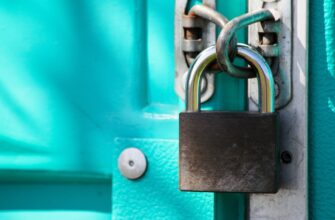- Introduction: The Critical Need for Non-KYC Wallet Security in 2025
- Why Non-KYC Wallets Demand Extra Vigilance in 2025
- Essential Security Measures for Non-KYC Wallets
- Advanced Protection Strategies for 2025
- Maintaining Anonymity in Transactions
- Future-Proofing Your Wallet: 2025 and Beyond
- FAQ: Non-KYC Wallet Security in 2025
Introduction: The Critical Need for Non-KYC Wallet Security in 2025
As regulatory pressures intensify globally, crypto users increasingly seek privacy-focused alternatives to KYC (Know Your Customer)-bound exchanges. By 2025, guarding non-KYC wallets isn’t just about convenience—it’s essential for financial sovereignty and asset protection. This guide delivers actionable strategies to secure your anonymous crypto holdings against evolving threats like quantum computing risks, sophisticated phishing, and regulatory overreach. Embrace these steps to become your own bank, safely.
Why Non-KYC Wallets Demand Extra Vigilance in 2025
Unlike KYC-verified exchanges, non-KYC wallets place full security responsibility on you. In 2025, threats escalate with:
- Advanced Hacking Tools: AI-powered malware targeting wallet vulnerabilities.
- Regulatory Scrutiny: Governments may monitor decentralized transactions more aggressively.
- No Recovery Fallback: Zero customer support for lost keys or stolen funds.
Prioritizing anonymity without compromising security is the 2025 imperative.
Essential Security Measures for Non-KYC Wallets
Build your defense foundation with these non-negotiable practices:
- Hardware Wallets: Use devices like Ledger or Trezor for offline key storage. Update firmware quarterly.
- Strong Passphrases: Create 12+ character passwords with symbols, numbers, and uppercase/lowercase letters. Never reuse them.
- Multi-Factor Authentication (MFA): Enable app-based 2FA (e.g., Authy) for wallet access—avoid SMS.
- Encrypted Backups: Store seed phrases on metal plates in fireproof safes—never digitally.
- Regular Audits: Check transaction histories monthly for unauthorized activity.
Advanced Protection Strategies for 2025
Outsmart next-gen threats with these proactive tactics:
- Multi-Signature Wallets: Require 2-3 private keys for transactions (e.g., using Electrum).
- Air-Gapped Devices: Sign transactions offline via QR codes to isolate keys from internet exposure.
- Anti-Phishing Protocols: Bookmark wallet URLs, verify contract addresses twice, and use dedicated browsers.
- VPN + Tor: Mask IP addresses during transactions to prevent location tracking.
- Quantum Resistance: Migrate to quantum-resistant coins (e.g., QRL) or upgrade to wallets supporting post-quantum cryptography.
Maintaining Anonymity in Transactions
Keep activities private without sacrificing security:
- Privacy Coins: Utilize Monero (XMR) or Zcash (ZEC) for untraceable transfers.
- Decentralized Exchanges (DEXs): Trade via Uniswap or ThorSwap without ID verification.
- Coin Mixers (Cautiously): Use services like Tornado Cash 2.0 only after auditing their security—regulatory risks exist.
- Wallet Rotation: Use disposable addresses for each transaction to obscure fund trails.
Future-Proofing Your Wallet: 2025 and Beyond
Adaptability is key for long-term security:
- Stay Updated: Subscribe to wallet developers’ newsletters for patch alerts.
- Decentralized Identity Solutions: Explore self-sovereign ID tools like ENS for secure, anonymous interactions.
- AI Threat Monitoring: Employ blockchain analytics tools (e.g., Arkham) to flag suspicious network activity.
- Regulation Radar: Monitor legislation changes via crypto advocacy groups like Coin Center.
FAQ: Non-KYC Wallet Security in 2025
Q1: Is it legal to use non-KYC wallets in 2025?
A: Yes, but regulations vary. Most countries allow self-custody wallets, though large transactions may trigger scrutiny. Consult local laws.
Q2: Can hardware wallets be hacked?
A: Extremely unlikely if purchased new, firmware is updated, and physical access is restricted. Avoid used devices.
Q3: How do I recover funds if I lose my seed phrase?
A> You can’t. Non-KYC wallets offer no recovery options—store phrases in multiple secure locations.
Q4: Are privacy coins safer than Bitcoin for anonymity?
A: Yes. Coins like Monero obscure sender/receiver details by default, unlike pseudonymous Bitcoin.
Q5: Should I use a VPN with my crypto wallet?
A> Absolutely. It hides your IP from potential snoopers, especially on public networks.
Q6: What’s the biggest 2025 threat to non-KYC wallets?
A> Social engineering attacks. Hackers exploit human error—never share keys or click unverified links.
Conclusion: Guarding a non-KYC wallet in 2025 requires layers of proactive security. Implement hardware defenses, embrace privacy tech, and stay informed. Your crypto sovereignty depends on it.








